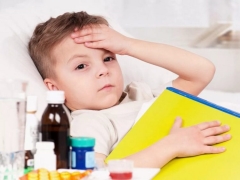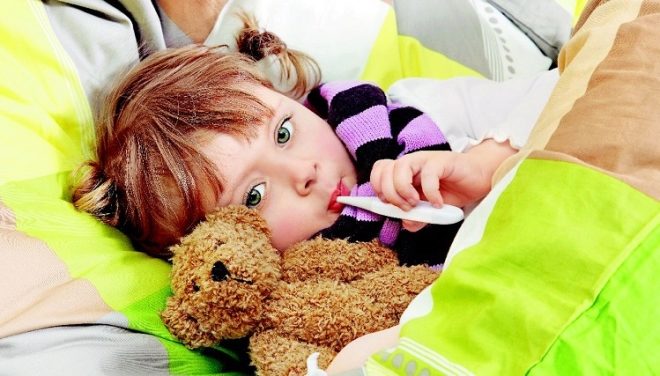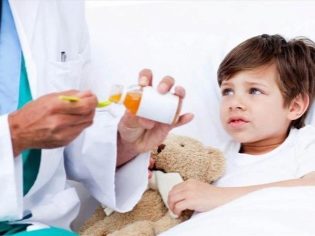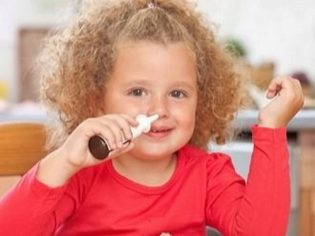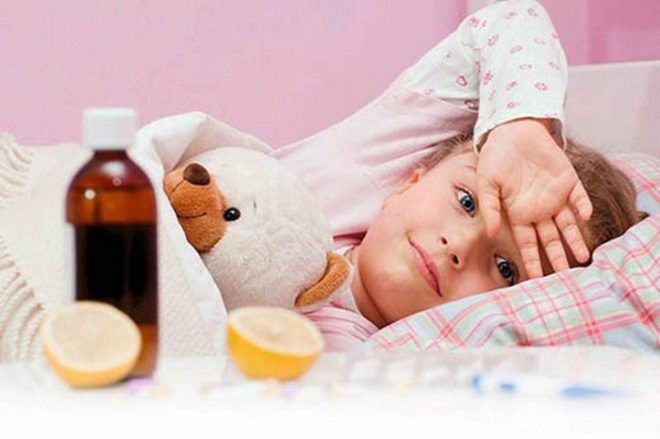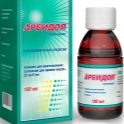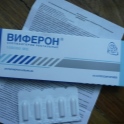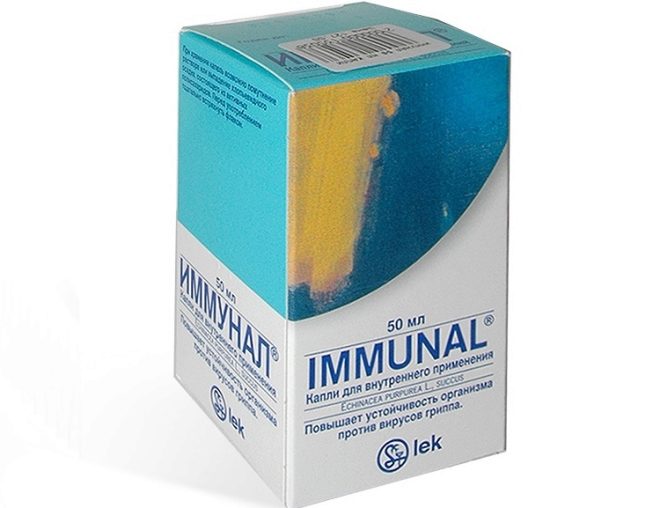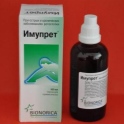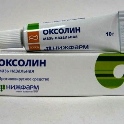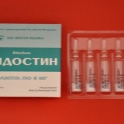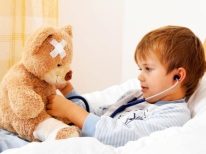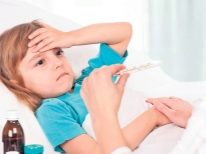Antiviral drugs for children 6 years
Six years of age is a rather difficult transitional period in the life of a small person. Some of the children at the age of 6 already attend school, the parents of others plan to do this at the age of seven, but at 6 they begin to take their children to the school of early development. Many children of this age attend sections and circles, institutions of additional education.
The circle of communication of the baby becomes wider. It is interesting, informative, but at the same time and dangerous. Especially in the cold season and periods of seasonal growth of viral diseases. How to protect your baby from flu and ORVI? How to treat it if the disease has already come? What antiviral drugs will help with this?
Medicines for viruses: the benefits and harm
Antivirus funds are widely advertised on TV and on the Internet. Especially advertisers try in the fall and spring. Indeed, the sector of these medicines brings multibillion-dollar profits to pharmaceutical campaigns, because intrusive advertising convinces adults not only to buy miracle pills for the flu and drink them "at the first symptoms of a cold and flu," but also give them to your children. What parent does not want to protect her baby from a dangerous and dangerous infection?
In fact, such “pressure” on a strong parental instinct is more like manipulation, an excellent marketing move, the goal of which is not to preserve the health of the nation, especially the younger generation, but to earn as much money as possible.
Let's see if children need antiviral drugs?
No matter how much the flu and ARVI tablets and syrups are praised for commercials, the effectiveness of most antiviral drugs, unfortunately, has not been proven to date. Scientific research and testing of these drugs is extremely rare, and if this happens, the tests are headed by strange laboratories belonging to the manufacturer itself, and not by third-party organizations that are not interested in the result obtained.
According to most doctors, antiviral drugs can have an effect if taken in the first hours after the virus begins to multiply in the body. At the advanced stages of infection from these drugs have a little sense. Most often, these drugs are recommended for prophylactic use.
Among the main disadvantages of these pills and syrups usually called negative impact on the child’s own immunity. Most of the drugs against viruses act as immunomodulators and immunostimulants. That is, the active ingredient causes the body's natural defense mechanisms to activate and respond more quickly to the causative agent. Frequent use of such drugs makes the immune system "lazy," and the baby begins to get sick more and more often.and the diseases themselves he suffers more and more heavily each time.
It is also possible the emergence of specific immune aggression, when the antibodies “switch” their attention in the infected cells to completely healthy cells.
Some antiviral agents contain interferon, a protein that is involved in the body’s immune response to virus invasion. Immunity of a healthy person produces such protein compounds on its own.
Acceptance of interferon from the outside helps to quickly start the mechanism of opposition to the infection, but such drugs often cause quite severe side effects in children.
There are drugs that act on the virus "directly", destroy its DNA and prevent its reproduction. They do not have any effect on immunity, but in general they are quite “beating” all over the body. Children such drugs give with extreme caution.
According to parents, homeopathic antiviral drugs have been widely used.. They do not have side effects, almost no contraindications, and therefore loved by moms and dads. However, the effectiveness of homeopathy today is also a controversial and ambiguous issue. It is not possible to investigate it in the laboratory clinical conditions due to the extremely small doses of the active substances contained in homeopathic preparations.
However, all these nuances are not a reason to refuse to take antiviral medications when the situation requires it. After all, severe forms of viral infection, influenza, chickenpox and measles using tea with honey are not easy. And although the drugs we are talking about are sold in pharmacies without prescriptions, to use them for any reason and without it in any case impossible.
Let's try to understand when it is necessary or not necessary to give antivirus to children aged 6 years and a little older.
Indications
Acute form of viral disease. If a child is rapidly developing influenza or ARVI, in some situations with chickenpox, measles, and respiratory infections caused by viruses, with "intestinal flu." It would be better if the doctor prescribed the medicine, considering the condition of your baby. With a high stale temperature (above 39 degrees for six years), antiviral drugs can be prescribed as a remedy, which somewhat reduces the risk of complications.
Prevention of colds and a general increase in immunity. When choosing a remedy for preventive use, you should also ask for the opinion of your treating pediatrician. He will not only tell you what medicine to buy, but also prescribe a dose. The prophylactic dosage is usually less than twice the therapeutic one, and sometimes even three times. Such medication is relevant for a six-year-old child if there are already viral infections in his environment (in the family, in the kindergarten group or in the class).
Application features
Children's immunity to 6 years is usually much stronger than at the age of one or two years old. He has several times encountered various bacteria and viruses, and "remembered", and also knows how to "recognize" them and respond in time. Therefore in any case it is not necessary to feed the six-year-old with pharmacy medicines every time a cough or rhinitis appears. Give your own immune defense a chance to do his “job.”
Antiviral agents should not be used more than twice a year. For admission as a prophylaxis, this statement is also true.
Parents should have no difficulty in choosing the dosage form of the drug: children at this age can already safely take not only “children's” syrups and suspensions, rectal candles and drops, but also pills. But capsules, including those with a dissolving shell, are six-year-olds contraindicated. You can take them only from 12 years of age.
The list of drugs for children aged 6+
- «Tamiflu»;
- "Viferon";
- Algirem;
- "Tsitovir 3";
- "Ingavirin 90";
- «Amiksin»;
- "Arbidol children";
- «Kagocel»;
- «Lavamax»;
- "Anaferon children".
- "Oxolinic ointment";
- Ridostin;
- "Otsillokocinum";
- «Engystol»;
- "Immunoflazid";
- «Immunal»;
- «Rimantadine»;
- "Imupret";
- Laferobion;
- «Influcid»;
- «Orvirem».
Tips
If your six-year-old baby has a flu, acute respiratory infections or an acute respiratory viral infection, do not limit yourself to taking antiviral drugs, follow some rules that will help your child recover faster.
- The flu is not so terrible as its complications. They really can be destructive. Angina, sinusitis, otitis, sensory hearing loss, heart, kidney and liver complications. Predict them yourself is impossible. Be sure to show the six-year-old doctor. You do not need to go to the clinic, so as not to contribute to the spread of the virus. Call the doctor at home.
- You need to start taking antiviral drugs within 36 hours after the first symptoms of the disease. Later drugs will not give the desired effect.
- Provide the crumbs proper drinking mode. To calculate the amount of water to be given, multiply the weight of the child by 30. Drinking should be warm, it is better if it is plain water, not carbonated and savory. You can alternate water intake with dogrose decoction, black currant juice or viburnum (these are excellent natural plant-based antiviral drugs).
- Follow the schedule and frequency of medication. Pay attention to the shelf life of medicines.
- Do not wrap your baby and do not tightly seal all the vents in the house. Your child who is sick with the flu or chickenpox needs fresh air, normal, and not too high air temperature in the apartment.
- Provide chad bed.
- The temperature below 39.0-39.5 does not need to be reduced. Rather, it indicates the normal functioning of the baby’s immunity.
- If additional symptoms appear, the runny nose gets stronger, discharge from the nose acquires a green, gray, gray-green or purulent hue, there is an unpleasant smell from the mouth when there is a sore throat, signs of intoxication appear, be sure to tell your doctor. This may indicate the development of bacterial complications, for the treatment of which antibiotics effective in this situation may already be needed.
Learn all about antiviral drugs and in what cases you can use them from the transfer of the popular pediatric Komarovsky, see the following video.
